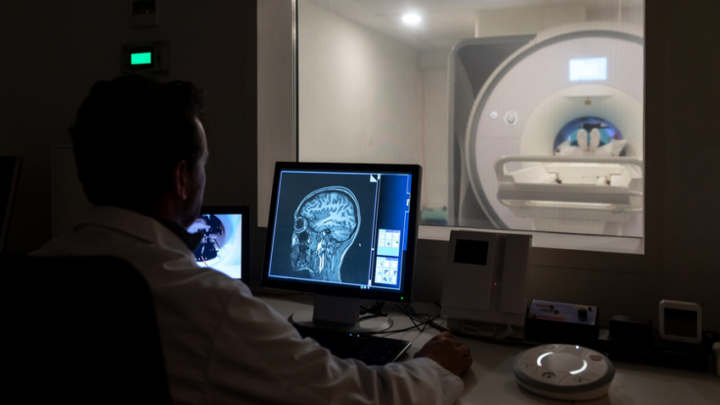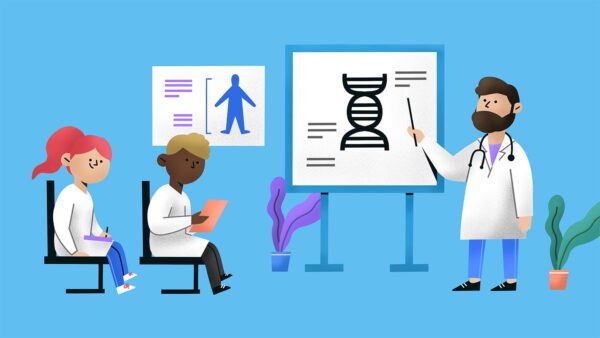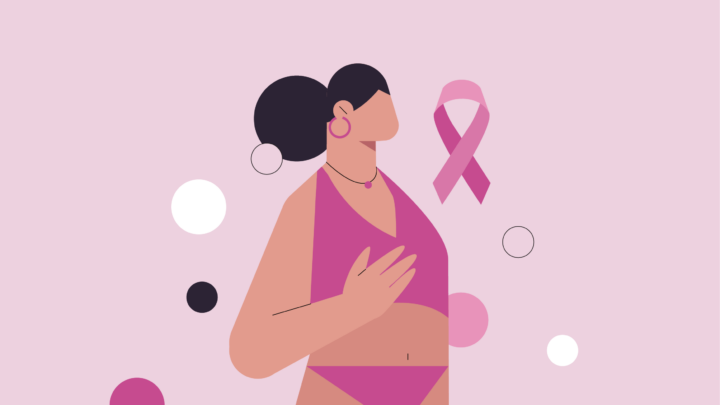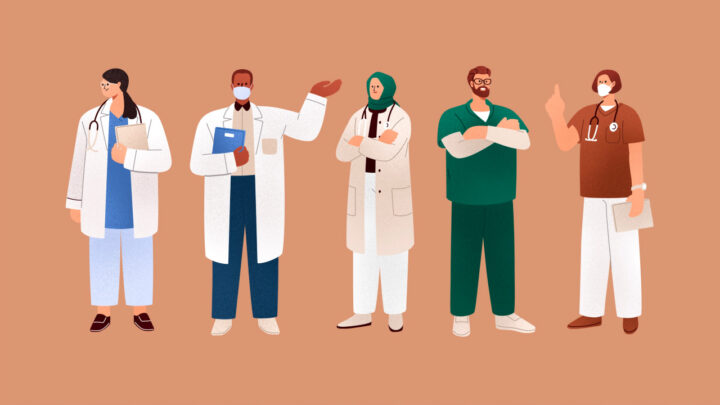
The Neurotransmitter oxytocin has long been touted as “the love hormone” because it is released during hugging, sexual activity, childbirth, and breast feeding. But a new study takes it a step further, and actually links oxytocin to overall life satisfaction.
According to the American Association for the Advancement of Science, “People whose brains release more of the neurochemical oxytocin are kinder to others and are more satisfied with their lives. This is the finding of new research, published in Frontiers in Behavioral Neuroscience, that also discovered that oxytocin release increases with age, showing why, on average, people are more caring as they get older.
‘The findings of our study are consistent with many religions and philosophies, where satisfaction with one’s life is enhanced by helping others,’ reported first author Dr Paul J Zak of Claremont Graduate University.
‘Participants in our study who released the most oxytocin were more generous to charity when given the opportunity and performed many other helping behaviors. The change in oxytocin was also positively related to participants’ empathy, religious participation, and gratitude.’”
Another recent study on oxytocin revealed that when lions are exposed to the hormone over a period of time, they become friendlier and less prone to roaring.
Science X reports, “Scientists who spent years spraying oxytocin up the noses of lions found the big cats became much friendlier with their neighbors and less prone to roaring at strangers when dosed up on the so-called ‘love hormone.’
The results, published in the journal iScience on Wednesday, could have major benefits for conservation efforts as unfamiliar prides are increasingly forced by urban sprawl to live together in reservations.”
In a recent poll of 250+ physicians, 84% said these studies reveal that oxytocin is more powerful than they realized; and 97% said that oxytocin should be further explored in medicine.
Forty-four percent of physicians said they’ve observed the effects of oxytocin in their practice.
Below, Sermo physicians from around the world share more of their professional insights, perspectives, and opinions on this important topic—in their own words:
I believe that oxytocin release during delivery and lactation helps to cement the mother-baby bonding.
OBGYN, U.S.
Interesting study that reveals other beneficial actions attributed to oxytocin, including the well-being it produces in older people.
Pediatrics, Venezuela
Oxytocin has been used in autism to increase empathy and social connection.
Psychiatry, U.S.
A little explored topic that deserves more research.
General Practitioner, Columbia
I think a study should be done for the management and control of both cases of post-COVID depression.
Pediatrics, Mexico
My experience was as a gynecologist in induction and delivery management.
General Practitioner, Spain
I strongly believe that if you give someone a useful contribution for his life you will definitely become a happier person yourself. ‘For what pleasure can compare the pleasure of bringing joy and hope to other hearts. The more we make others happy the greater will be our own happiness and the deeper our sense of having served humanity.’ (Shoghi Effendi)
General Surgery, France
Women have more of it – and, therefore: A longer life expectancy, in my opinion.
Ophthalmology, German
Empathy is the starting point to release oxytocin, the patient is comfortable with the care he receives from the doctor and can trust him in seconds with things that he would not say at another time, when we feel that feedback and tell the patient, child or adolescent ‘let me give you a hug of solidarity for what you are going through’ you are loving what you do, helping, encouraging, working for their mental health that also benefits the doctor…The same patient says I admire your patience … Long live oxytocin and when we go home it’s as if we had our pockets full of money but it’s not cash it is satisfaction gentlemen, for what you do, with love you are returned in love, What a timely article!
Psychiatry, Ecuador
It is important to stimulate the brain to release oxytocin naturally, carrying out activities in everyday life such as smiling, practicing altruistic activities, being kind, having good thoughts, being affectionate and friendly.”
General Practitioner, Venezuela
“If it is true that this hormone plays a very important role in our lives, it exerts modulating functions in our central nervous system, therefore in social and sentimental behaviors, sexual behavior and parental patterns, it is one of the most important hormones during birth and breastfeeding which creates bonds between mother and child very quickly. Love is a feeling of strong affection but generated by Oxytocin. Our body releases Oxytocin when we hug and become emotionally attached to people we love. Oxytocin is capable of making people more optimistic, causes feelings of satisfaction and security and is associated with the union of the couple! It’s a vital hormone ❤”
General Practitioner, Cuba
Oxytocin is a hormone that can be used for sports purposes, that is to fuel physical performance, but of course for now it is more theory than practice.
General Practitioner, Cuba
Everyday thousands of Sermo member physicians from diverse backgrounds and experiences exchange knowledge with each other. Sermo is the original medical social network that empowers today’s physicians. Over 1 million fully verified physicians across more than 150 countries come to our platform to talk with peers, participate in paid medical studies, solve challenging patient cases, contribute to the world’s largest database of drug ratings – and enjoy a few laughs along the way.
Interested in more? Check back any time and follow us on Facebook, Twitter, and LinkedIn for the latest and greatest in physician insights.
Are you a physician or healthcare practitioner?
Explore the many benefits of joining Sermo’s medical community and sign up for free today.















